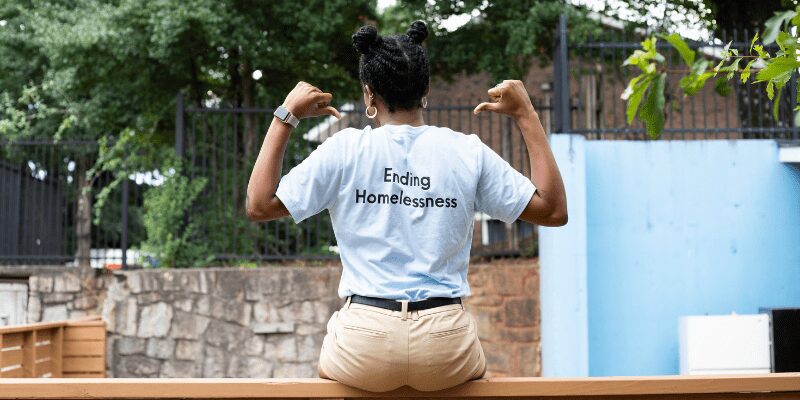Markesha moved to Atlanta, escaping a Florida neighborhood that had become violent and unsafe for her two children.
But finding an apartment became a challenge — and it wasn’t because of a previous eviction or lack of income, but for something else beyond her control. The single mom took refuge in a motel.
“I had moved from Florida, got a motel expecting to simply apply for housing here in Atlanta,” Markesha says. “I had lived in Atlanta before, and I was determined to simply start over.”
But that didn’t happen. Markesha says every apartment she applied to denied her.
“I couldn’t understand it because I don’t have any evictions, felonies or things like that,” she says. “I found out that I had two really high unpaid light bills in my name from two different states. I never lived in those states. Someone used my name.”
The unfortunate event led to what she calls an “11-month battle of homelessness.” She says living in the motel was a “horrible” experience. She had to send her eldest daughter to live with her mother and keep her son with her.
“I couldn’t have my family unit together,” she says. “I was trying to escape my old environment but living in the hotel made it feel like I was back in the same environment. Living in a hotel is no place to raise a child.”
There was no space to move around, no stove — and the environment she was trying to escape by moving to Atlanta had crept its way back into her life. She was paying more than $1,000 monthly for a space that was too small and didn’t allow her to be with her family. She started to think about moving back to Florida.
But then Markesha got a flyer from a friend at the motel about a “Motel-to-Home” program through United Way of Greater Atlanta’s Regional Commission on Homelessness.
The Regional Commission on Homelessness and United Way are working to end homelessness and change lives in Greater Atlanta. Motel-to-Home is a three-step process of outreach, housing and aftercare. Housing location specialists work to identify the barriers each family faces and then match them with affordable housing.
Once a family is able to pay their own rent or mortgage without assistance, the family is eligible for ongoing aftercare services, which include financial literacy training, workshops and incentive-based programs.
“Right before that flyer came into my life, I was just about to pack up and move back to Florida,” Markesha says. “I applied to so many apartments and they all said ‘no.’ I was paying $1,050 for a motel room monthly – no space, no real kitchen, no extra room, and my family was still split. Now, I live in a two-bedroom apartment with a full-size living room, dining room, kitchen, and two bathrooms for $955.
“I can cry right now. You just don’t realize just how much this place means to me.”
Motel-to-Home is modeled after United Way of Greater Atlanta’s Street-to-Home Initiative, which aims to connect families living in motels to their own permanent housing.
Homeless families and individuals will often live in motels when they may be on the brink of homelessness. There are motels in every county that families use as a last resort. Motel-to-Home intervenes to provide families with case management, assistance with deposits and follow-up care to capitalize on their existing strengths and income.
The program helped Markesha get her family back, she says. He daughter was able to return back home.
“That’s the biggest blessing,” she says. “My husband died a few years ago and that’s how I became a single mom. My husband was my best friend.
“So, to go through this struggle and having to split my family was the hardest thing ever. But living here allowed us to reunite.”
Will you unite with us to do more for families in Greater Atlanta—families like Markesha’s? When we unite, we can change lives. Let’s do more, together.





